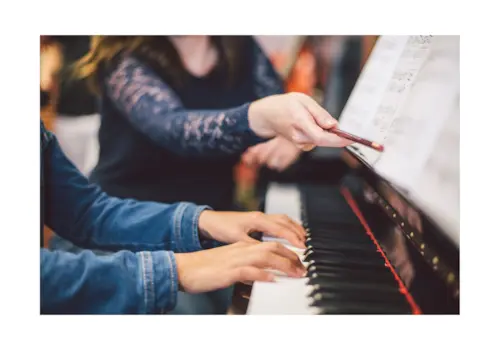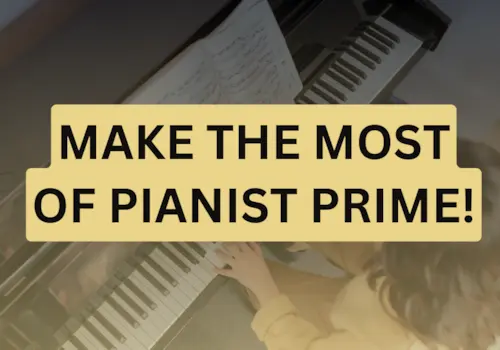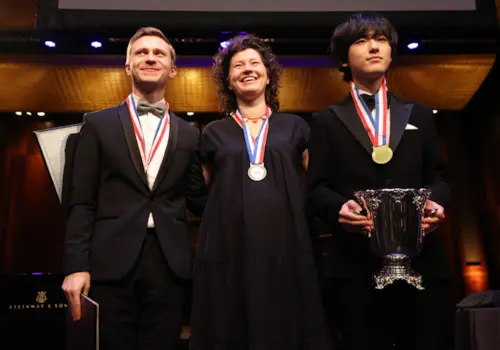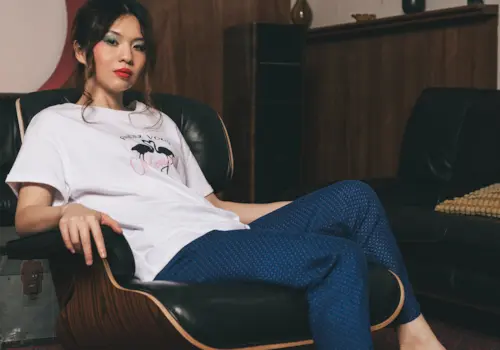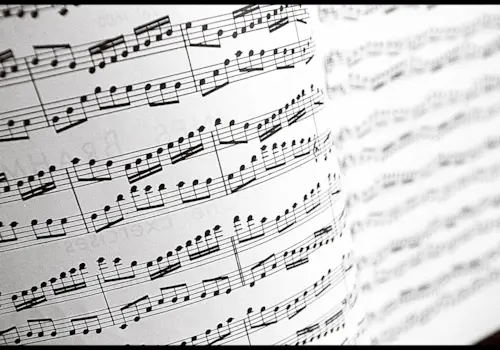13 January 2017
|
Leading teacher and concert pianist Murray McLachlan tells you how to find the teacher that suits your needs
What do we piano teachers talk about with optimism and high spirits when we get together at festivals, student concerts, conferences and the like? What makes our eyes sparkle, our spirits soar and our energy levels grow exponentially? The answer is enthusiastic students, and in particular adult students, whom an increasing number of teachers over the past few years are finding especially rewarding and inspiring to work with. Adults who sign up for piano lessons usually have a hunger to learn, and a determination to succeed. Moreover, they often find it easier to show more personable qualities to their teacher than children are able to, which means that for teachers pre- and post-lesson chat sessions are often extremely interesting in themselves.
The important thing to remember if you are an ‘adult amateur’ pianist in search of a teacher is that there is a piano mentor out there who will love to have you as a student and whom you will adore studying with! Adult amateurs (henceforth referred to as AAs) come in all shapes and sizes, ranging from complete beginners to those who graduated successfully from music college but decided to pursue a different career path thereafter. If you have decided that piano lessons are for you, congratulate yourself for embracing a hobby that could become a passion for the rest of your life, and remember to hold your head up high.
The main problem many new AAs face is feelings of inferiority mixed with diffidence to play even a simple scale to another listener, let alone an experienced teacher. If this is the case, it may be appropriate at least initially to explore the growing industry of online piano teaching resources that are increasingly available, especially from the United States. ‘Peery Piano’ [see box for website details] is one of the most user-friendly, assigning a personal teacher to each student who subscribes and offering excellent tips on performance mixed with a fine selection of archival performances. ‘E-music maestro’, a subscription-based website from the UK, is an encyclopaedic resource, one that evidently continues to grow. It provides specific answers to all kinds of pianistic problems and issues, as well as a phenomenal range of performances of graded exam pieces and popular works from the earliest levels up to and beyond diploma standard.
Phone a friend
Of course, overcoming the ‘I’m not good enough’ factor may take some time, but it helps enormously to befriend other AAs and gain fellowship through their friendship. It is also the most sure-fire method known of finding the right teacher for you to study with, because it is through word of mouth that you will gain an authentic insight into the particular strengths, qualities and approaches of teachers who are willing to work with you.
If you feel too nervous to play even a note to a teacher, try going on a course as an observer, make friends with other AAs, and gradually build up the courage to play for them informally AA piano fellowship can be found at summer schools around the UK, the US and in continental Europe. The list would include summer schools in Dartington, Hereford, Chetham’s School in Manchester and Lot Music in France. You can also join amateur groups such as the Alberti Piano Group in Manchester, which meets once a month to discuss piano and play for each other. In London, renowned concert pianist Philip Fowke holds weekly classes at Jaques Samuels Pianos specifically for AAs, and these have proved to be popular and in high demand for many years. There are also a number of weekend courses available, including those run by Benslow Music, the Ulverston Festival Piano Academy and the Oxford Piano Group.
EPTA UK (European Piano Teachers’ Association) has an excellent ‘Find a teacher’ section of their website but if you do not yet feel ready to do that, then you can join EPTA as an affiliate member which enables you to attend any of the one day workshops, concerts and competitions that they run regionally and in abundance across the breadth of the country. (The US-based Music Teachers National Association, MTNA, has a similar search facility on their website.)
Summer schools, courses, masterclasses and vibrant chit-chat with experienced AAs all play their part in helping guide you towards your perfect piano mentor. You will find that the same names keep on coming up in conversation, and that AAs tend to flock together towards a small group of ‘names’. Again focusing on the UK, Martin Roscoe (residing in the Lake District) is a famous and busy artist who always makes time to hear adults. Edinburgh-based Margaret Murray McLeod is another.
But ultimately you have to pick up the phone, arrange a lesson with a teacher, and decide what you are going to do, after reflection and consideration. It is good for you and your teacher to agree on a set number of lessons as a trial period initially, and to take it from there. Your progress, enjoyment and response to your teacher’s style of teaching will be crucial factors in determining if you stay on for lessons, or opt to try another approach. The best teacher will want to know what you hope to achieve, and give you a sense of structure not only for the way in which lessons will develop, but also, and most importantly for how you should practise at home. Good AA teachers will not object if you wish to record the lessons for study during the week, and they will not mind if you wish to phone them in between lessons in order to check certain points.
In addition to deciding clearly what it is you hope to achieve on a musical basis (goals can range from being able to play basic chord patterns to passing diplomas, and so on) it is important that you are able to relate comfortably with your teacher. If you feel ill at ease in the lessons, then it is going to be extremely hard to make progress, as technical security and musical confidence is built up from a sense of ease and well being. AAs often seem to need musical mentors in their lives – remarkable, warm-hearted souls who genuinely love teaching and helping others. I would go as far as to say that personable kindness and belief in students is worth more than aloof wisdom when it comes to helping insecure AAs with their long-term practice. Don’t forget that it is always possible to enhance your weekly lesson with a kind if somewhat limited teacher by going on summer schools and courses for additional musical input.
Concert pianist, writer and teacher Murray McLachlan is Chair of EPTA-UK and founder-director of the Chetham’s International Summer School for Pianists. He is Head of Keyboard at Chetham’s and also a senior tutor at the RNCM.
Do you have a teacher that you adore and admire? Tell us about them, by writing to our editor Erica Worth. We may well publish your response in Pianist magazine so that they get the acknowledgement they deserve!

